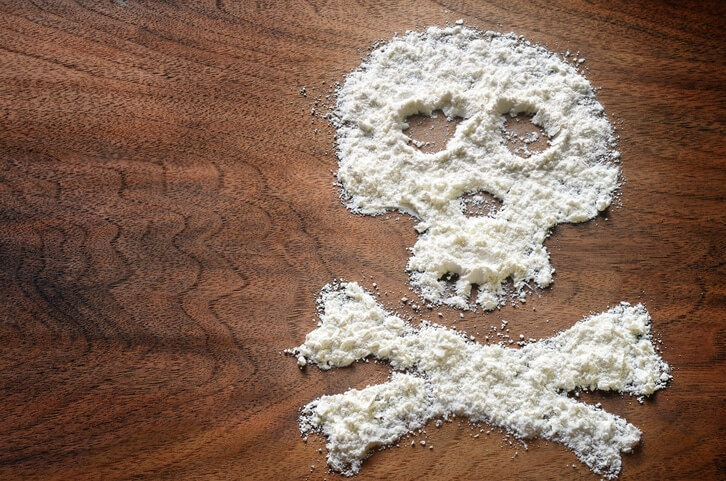After a century of declaring talcum powder safe for use on babies, it’s become one of Johnson & Johnson’s most iconic products. But a recent court case has many people asking: Is talcum powder safe? Johnson & Johnson lost a major talcum powder courtroom battle in 2018, and must now pay $2.12 billion in damages. Many women use talcum powder in the genital area to absorb moisture and maintain a fresh feeling throughout the day. However, talc-based powders may be unsafe to use for prolonged periods of time — particularly in that area of the body.
Here are three things consumers should know about talcum powder before using it.
1. Studies Show Using Talc Products Can Increase Women’s Risk of Ovarian Cancer
University of Virginia epidemiologist Joellen Schildkraut’s study sheds light on the link between talcum powder use and increased cancer risk. Schildkraut was initially skeptical about the possible connection between talc and ovarian cancer. She decided to use African-American women for her subjects, since they were underrepresented in previous studies about this issue. Additionally, they belong to a segment of the population that uses talcum powder more frequently than white or Hispanic women.
Schildkraut’s research team interviewed 584 black women with ovarian cancer and 745 that were cancer-free. Her results showed 63% of ovarian cancer subjects used talcum powder, while 53% of the healthy group also used it. This led Schildkraut to concede there’s an increased ovarian cancer risk from talc use. She now advises women to avoid putting any talc-based powder near the genital region.
Earlier research had similar results, including a 1999 study of 121,000 women on talcum powder application frequency and location. The study showed perineal talc use increased women’s ovarian and cervical cancer risks.
2. Companies Still Won’t Disclose Risks to Consumers Asking, “Is Talcum Powder Safe?”
Despite medical research, J&J refused to add a warning label to their numerous talcum powder products. Researchers published the first study showing a dangerous link between talc use and ovarian cancer in 1971. Scientists analyzed 13 ovarian tumors and found talc particles deeply embedded in 10 of them. Since then, more than 20 studies conducted over a 40-year period have shown similar results. Johnson & Johnson insists that any research linking talc use and women developing cervical or ovarian cancer is unreliable. In fact, one expert consultant working for J&J even stated that “the science is black and white.” The American Cancer Society would disagree, however, as they classify perineal talc use as “possibly carcinogenic to humans.”
In fall 2019, J&J recalled 33,000 bottles of talcum powder that tested positive for asbestos, a known carcinogen. Then in May 2020, the company announced it would permanently halt all talc-based powder sales in the United States.
3. Plaintiffs Have Won Settlements in Talcum Powder Lawsuits
Thousands of women demanded compensation from J&J due to inadequate warnings on their extensive line of body and baby powders. Consumers have used the company’s products daily for decades, unaware of the potential health risks. In 2018, a Missouri jury ordered J&J to pay 22 ovarian cancer plaintiffs $2.12 billion. This is the largest talcum powder verdict to date, awarding each victim more than $96 million in real and punitive damages. Still asking yourself, “Is talcum powder safe based on just one lawsuit ruling?” In addition to this stunning ovarian cancer ruling, many other plaintiffs allegedly developed mesothelioma from inhaled talcum powder. Since April 2018, multiple juries found asbestos fibers in J&J’s talc-based powders responsible for plaintiffs developing mesothelioma. This rare (and always fatal) lung cancer exclusively comes from inhaling asbestos particles and has no other confirmed or known cause.
What You Can Do
If you or a loved one developed ovarian cancer after prolonged talcum powder use, you may qualify for compensation. Juries found J&J negligent for not warning consumers about talcum powder risks. Fill out your free talcum powder claim review form today to see if you may have a case.
Related: Talcum Powder Settlements and Financial Compensation Information
